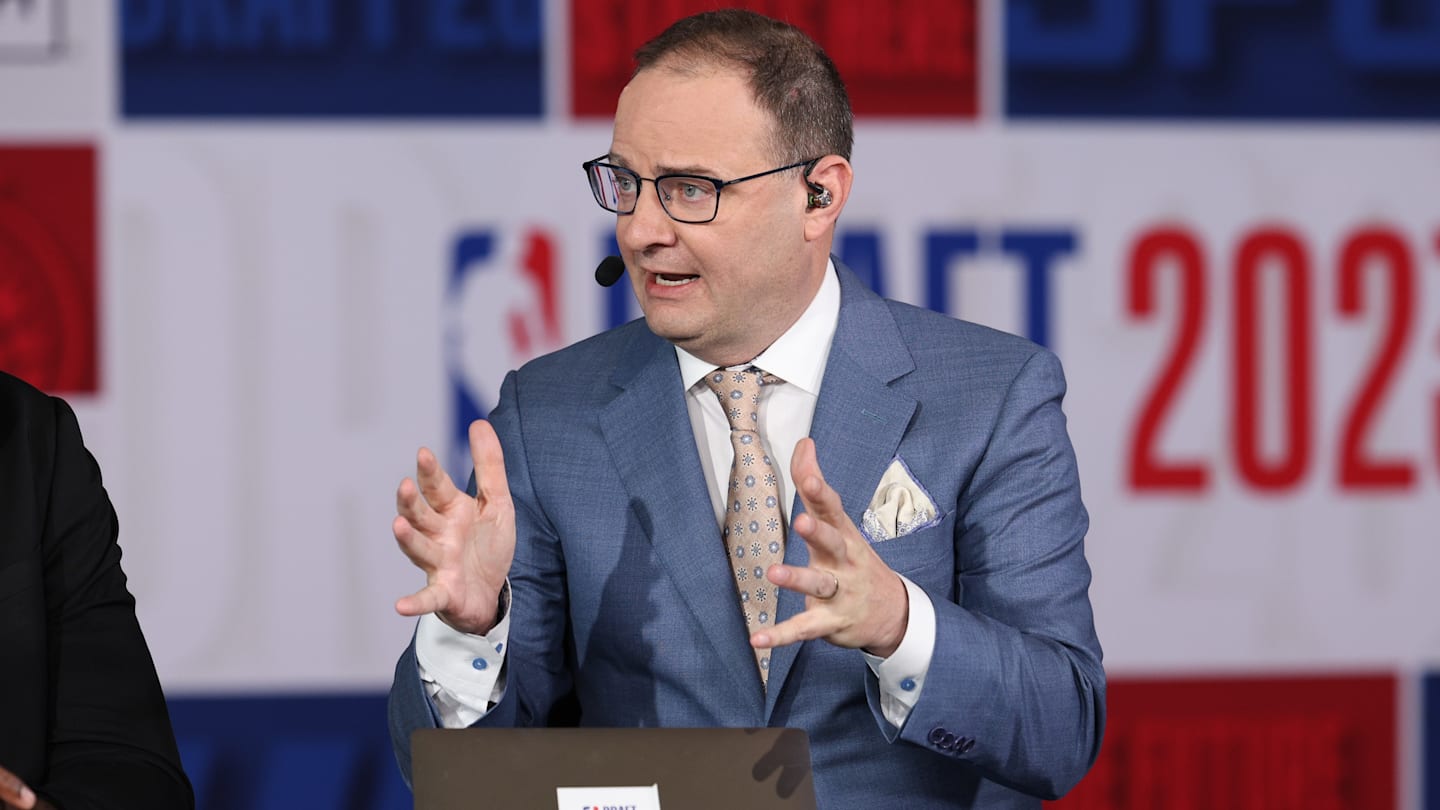Adrian Wojnarowski’s Transition from ESPN to College Basketball: A Game-Changer for the Bonnies
Adrian Wojnarowski, widely regarded as one of the top insiders in the NBA, has made headlines once again—not for breaking news on player trades or coaching changes, but for his decision to retire from ESPN and take on a new role as the general manager of the St. Bonaventure Bonnies men’s basketball program. This unexpected move is not just significant for Wojnarowski personally; it carries substantial implications for the landscape of college basketball, particularly in the era of Name, Image, and Likeness (NIL) and the evolving dynamics of roster management.
A New Role with Diverse Responsibilities
Wojnarowski’s new position at St. Bonaventure will see him managing a wide array of responsibilities that are becoming increasingly vital in college sports. According to the official announcement, his role will encompass overseeing NIL opportunities, acting as a liaison with collectives, managing the transfer portal, and fostering relationships with recruits, families, and alumni. This is akin to leading the front office of a professional basketball team, a role he is uniquely qualified for after years of reporting on the inner workings of NBA franchises.
The shift towards hiring general managers in college basketball is a trend that has been gaining momentum, mirroring developments in college football. Programs are recognizing the need for specialized personnel to navigate the complexities of roster management, NIL deals, and player relationships. Wojnarowski’s appointment is a testament to this evolving landscape, as he brings a wealth of experience and connections that could significantly benefit the Bonnies.
The Rise of General Managers in College Basketball
The concept of a general manager in college basketball is relatively new, but it is rapidly becoming a necessity. Schools are increasingly investing in personnel who can focus on talent evaluation, manage relationships with player agents, and secure NIL deals. For instance, Duke was one of the first programs to embrace this model, hiring Rachel Baker, a former Nike executive, to enhance players’ personal branding and NIL partnerships.
Other programs have followed suit, with Syracuse, Butler, and Howard all bringing in individuals with NBA scouting or personnel backgrounds. The role varies from program to program; some GMs are tasked with talent evaluation, while others focus on fundraising and NIL deal sourcing. As the landscape continues to shift, coaches are beginning to see these positions as essential to building competitive programs.
Wojnarowski’s Unique Connection to St. Bonaventure
Wojnarowski’s connection to St. Bonaventure runs deep. As an alumnus, he has long been a supporter of the program and has actively engaged in its NIL initiatives. Earlier this year, he and his wife pledged $50,000 to the school’s NIL collective, Team Unfurl, and have been vocal about their commitment to enhancing the program’s recruiting efforts. His involvement in the Bonnies’ recruiting process has already made an impact; reports indicate that he played a role in persuading a transfer portal player to choose St. Bonaventure.
This personal investment suggests that Wojnarowski’s transition to this role is not merely a retirement job but a genuine opportunity for him to contribute to the success of his alma mater. His extensive network within the basketball community, particularly with agents and players, positions him to be a valuable asset in recruiting and program development.
The Future of General Managers in College Basketball
Wojnarowski’s move to St. Bonaventure is indicative of a broader trend in college basketball, where the role of general managers is expected to grow in importance. As programs navigate the complexities of NIL and roster management, the demand for skilled personnel to fill these roles will likely increase. Coaches and athletic directors are beginning to recognize that these positions could become some of the most critical and highest-paid roles within their programs, second only to the head coach.
The recent investment in general managers, as seen with Alabama football’s Courtney Morgan receiving an $825,000 annual deal, signals a shift in how programs allocate resources. It wouldn’t be surprising to see basketball programs follow suit, especially as they adapt to the changing landscape of college athletics.
Wojnarowski’s Impact on the College Basketball Landscape
While Wojnarowski’s decision to step into a general manager role may seem like a personal choice, its implications extend far beyond St. Bonaventure. His high profile in the sports media landscape brings attention to the evolving role of general managers in college basketball. As more programs look to emulate this model, Wojnarowski could become a trendsetter, influencing how colleges approach roster management and player relationships in the NIL era.
His transition from a national media figure to a pivotal role within a college program underscores the significant changes taking place in college basketball. As the sport continues to adapt to new realities, Wojnarowski’s involvement may serve as a catalyst for further investment in general managers across the country, shaping the future of college basketball in profound ways.
